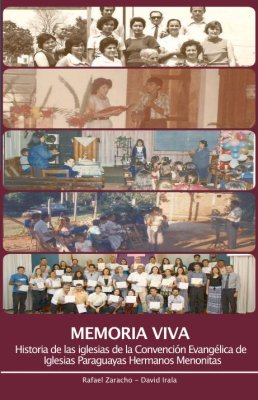The Benefits of Historical and Contextual Research

By David Irala, ISGA Research Fellow
David Irala began as a Research Fellow with the ISGA in 2021, with an interest in contextual theological education from a Latin American Anabaptist perspective. He is a member of the Evangelical Conference of the Paraguayan Mennonite Brethren Churches.
I have been engaged in research for the last six years. As a former research coordinator of Marturía, the Research Center of the Instituto Bíblico Asunción in Paraguay, I had the opportunity to cooperate with two projects: Memoria Viva and The History and Legacy of EVEX. Both were contextual and historical research projects that had the purpose of keeping alive the memory of the pioneers who founded churches and evangelized the first Christians in the context of the Mennonite Brethren churches in Paraguay. As a doctoral student, my current research is also connected to the Paraguayan context, with the purpose of offering principles for the development of pertinent theological education in Anabaptist perspective.
As I researched the legacy of brothers and sisters in the history of our Paraguayan Anabaptist church, I was inspired by the dedication and commitment of those who came before us. In addition, as I learned about the founding history of several Mennonite Brethren churches in Paraguay, I was able to appreciate the faith and work of brothers and sisters who believed, therefore they spoke (2 Corinthians 4:13) and cooperated with the extension of the Kingdom of God. Thus, not only did I value the loving service of those who preceded us, but I also saw myself in the stories of the brothers and sisters who “paved the way for us.”
After these opportunities I have had to serve the church and my community in research, I have found that this task of researching issues relevant to our contexts blesses and encourages us in at least three different ways.
First, historical and contextual research is a bridge to the past that leads us to consider our present and to look to the future with hopeful eyes. Looking back is an exercise that involves looking to the future. For those of us who love history, it is not enough to consider the past as a fact detached from our present and future reality. For the people of Israel, to live in a relationship with God was also to live in connection with their history, with the story of God’s marvelous works in the past. That history nourished their present faith and future hope.
We will not hide these truths from our children; we will tell the next generation about the glorious deeds of the Lord, about his power and his mighty wonders. So each generation should set its hope anew on God, not forgetting his glorious miracles and obeying his commands. Psalms 78:4,7 (NLT)
Secondly, historical and contextual research is an audible voice from the past that invites us to value the legacy of the pioneers. Thus, research leads us to consider those who went before us and paved the way for us to be part of a community of faith today. We are the result of God’s work through brothers and sisters who trusted and acted. Connecting with their stories inspires us to imitate their example of faith and value the blessings we possess in the present because of the efforts of brothers and sisters in the past.
Finally, historical and contextual research invites us to look at the bigger picture of God’s work in our faith communities. In this way, we understand that we are part of something bigger, of God’s work in past generations and of the sure hope that moves us in the present and carries us into the future. We understand our identity from a broader perspective, so we praise the God of life, who worked for us yesterday, works today, and will continue to work tomorrow.
Historical and contextual research should arise from the questions and doubts of our people, our contemporary challenges, and our current reality. Thus, research is relevant because it speaks to us in “our language.” It is an invitation to record God’s work in our history, inspiring our communities to praise God for His wonders of yesterday and to “pave the way” for those who will come tomorrow.
Let this be recorded for future generations, so that a people not yet born will praise the Lord. Psalms 102:18 (NLT)





